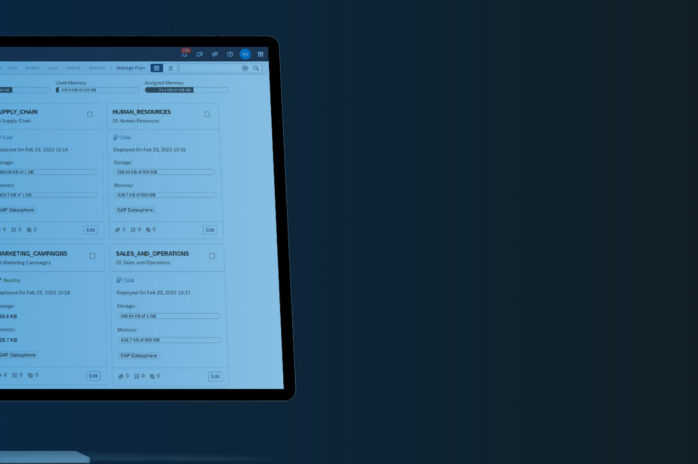On many occasions, I have come across a Business reluctant to invest in a Business Intelligence solution because of perceived problems with data quality.
“We can’t do this because our source system doesn’t validate the input fields properly”;
“We can’t do that because only one person understands it”;
“We can’t do that because we don’t understand how to get at the data”.
Many Businesses are unsure how to fix these issues in order to arrive at some promised land of data/reporting perfection. It’s true that many BI solutions on their own, such as Qlik, Tableau, PowerBI and so on, don’t resolve these issues (I will come back to this statement later). As a result, Businesses misstep by either putting all their efforts in to a poorly directed large-scale process of data review, or put it off altogether, hoping a new solution or operational application will eventually show up to sort it all out for them.
The truth of the matter is that by the time that large-scale process or the magical new solution have turned up, the Business has already moved on, developed new problems or worse yet, competitors have disappeared over the horizon in how they work. Business questions evolve and the approach to handling data should evolve with it, rather than react to a new reality. It’s easy to throw around new acronyms or phrases as the answer to these issues, but the next round of Business Buzzword Bingo can muddy the waters further, as very few people in an organisation understand it enough to get on board with the proposed solution (in all fairness, the world of BI is full of little phrases like ‘Single Version of the Truth’, but it’s my favourite and it’s a good one).
To help resolve these data issues, it’s important to first understand the symptoms – here’s a few of them:
- Employees spending large amounts of time playing around with numbers in spreadsheets. This even happens when firms have BI solutions in place, and it allows more human error to creep in to the information output.
- People spending meetings discussing who’s report is right, rather than discussing what the results actually mean – I say ‘discussing’ but we all know I mean ‘disagreeing’.
- Individuals spending large amounts of time actually trying to get the numbers out, only for them to be late, wrong or the questions remaining unanswered….and once the data results are out no one trusts them as they took so long to arrive!
Yuck.
So what’s the answer?
Firstly, get that BI solution – it might not solve all your data problems, but it gives you a good idea where to start looking. A solution such as SAP BusinessObjects has many applications to help you start getting good quality answers out. You can even use it to produce exception reporting to highlight where your data is letting you down.
Secondly, start the process of dropping your data into a single, easy-to-access location. We call this a data warehouse, but people think it’s one of those scary, large-scale data projects. An Agile development is called Agile for a reason, and it can enable you to quickly develop reliable results. You can even use it to validate that poor data or set up rules to manage it.
Thirdly, honestly, get that Agile Data Warehouse solution going – it ensures people have fewer places to get their data from, and builds trust in data and reports; fewer accuracy debates and more time asking questions of the data you have? Who doesn’t want a bit of that? It also means you get even better results from your BI solution.
Finally, don’t step into a project like this without having some experience on hand to steer you in the right direction. I spend a lot of my week in this area of expertise and it can help you make that data project bear fruit quicker. Whether it’s just scoping the start of an Agile Data Warehouse solution, or delivering the full solution and training your users, we have a proven track record in projects of this kind.
Let’s go back to that statement from earlier on: It’s true that many BI solutions on their own, such as Qlik, Tableau, PowerBI and so on, don’t resolve these issues. This Really is true, but if you couple it with a data solution that future-proofs your reporting needs, it keeps your Business well prepared for whatever lies ahead.











































































